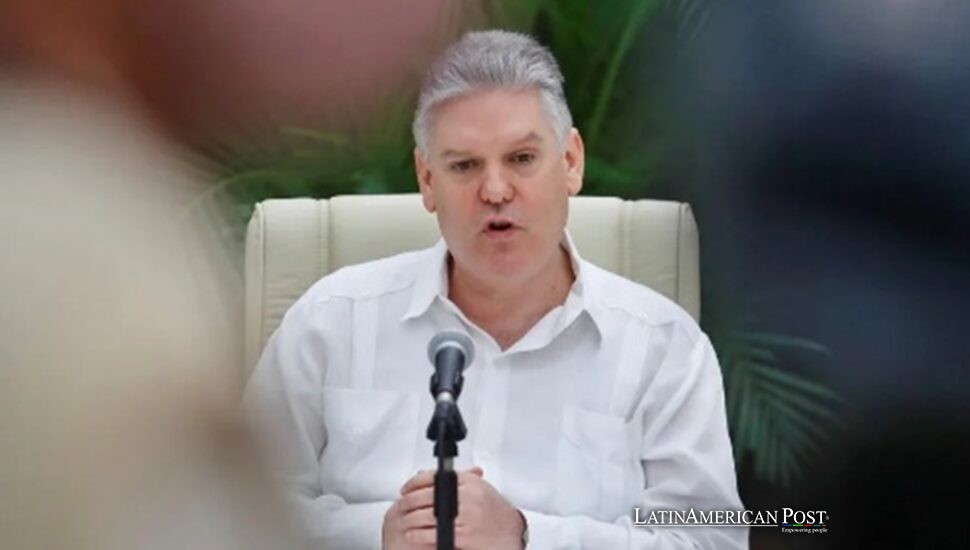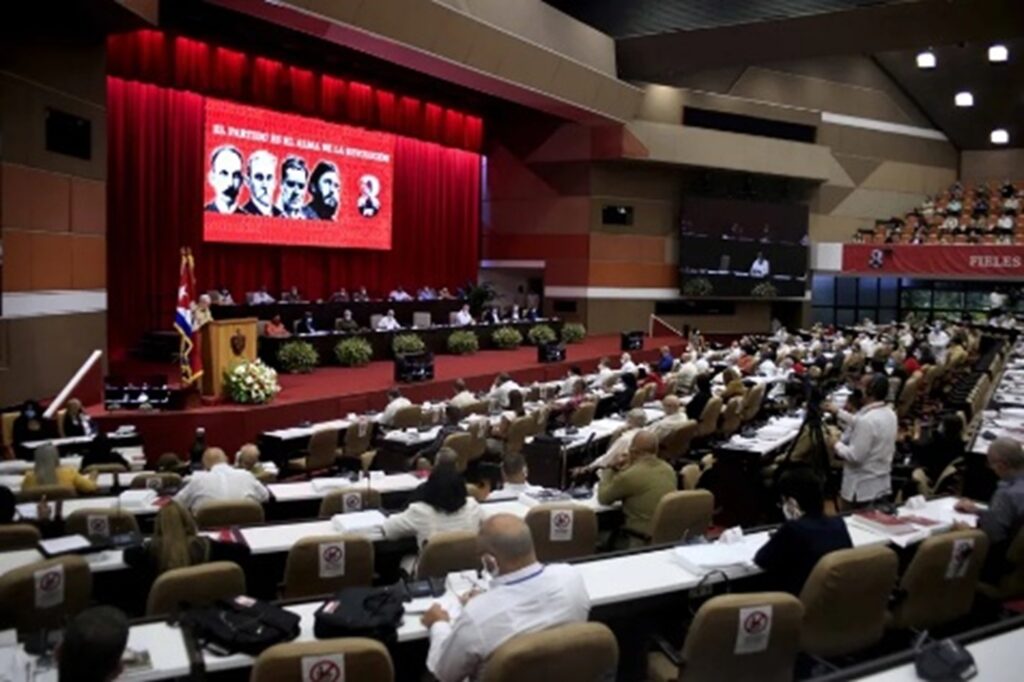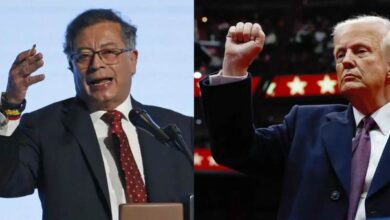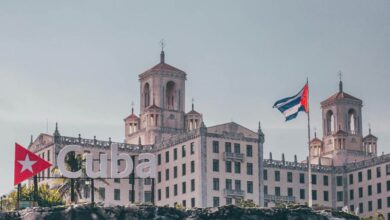Cuba Puts Its "Fixer" On Trial: Alejandro Gil's Fall From Reformer To Accused Spy

Havana just put Alejandro Gil, once Miguel Díaz-Canel’s top economic troubleshooter, on trial for corruption and espionage —the island’s biggest political collapse in 15 years. His abrupt 2024 ouster led to 11 charges, stoking whispers about secrecy, scapegoats, and a family-tight power struggle.
A Star Reformer Turns Defendant
Last week, Cuba’s Supreme Court opened proceedings against the man who, until recently, personified the state’s promise to steady a battered economy. Alejandro Gil, former vice prime minister and minister of Economy and Planning, now faces an unusually sprawling mix of charges, embezzlement, bribery, tax evasion, money laundering, and the one word that changes the temperature of any Cuban trial: espionage.
Corruption cases can be framed as housekeeping; espionage recasts everything as national security, sealing doors and lowering voices. As legal sources told EFE, the espionage count moved this case out of technocratic failure and into the theater of state survival, where the facts are fewer, the stakes are higher, and the story is written behind tinted glass.
Gil isn’t a low-ranking scapegoat offered to public anger. He is, by most measures, the most prominent official to fall in at least a decade and a half, a face on nightly briefings, a signature on the most consequential economic moves of the past five years. In 2024, he traveled from the cabinet’s front bench to a sudden dismissal for “serious errors,” then to detention, and now to the dock. The speed shocked even loyalists who, a year earlier, praised his spreadsheets and his patience.
What Havana is staging is more than a purge. It is a narrative contest. One script paints Gil as the fixer who betrayed the revolution’s trust; another casts him as a once-useful reformer turned expendable scapegoat for an economy that keeps breaking its own promises. The espionage label, vague by design, helps the state maintain control over which script wins, EFE noted.
The Reforms That Remade The Economy, And Unmade His Standing
To understand how Gil became both indispensable and disposable, follow the policies he shepherded. An engineer by training, he rose from state enterprises to the top in 2018, part of the generational turnover that saw Miguel Díaz-Canel succeed Raúl Castro. From that perch, Gil was tasked with delivering the long-postponed Tarea Ordenamiento, the 2021 overhaul meant to end Cuba’s dual-currency system and “normalize” prices, wages, and balances across a warped economy.
On paper, the blueprint promised rationality: one currency, cleaner accounts, a path back to productivity. In practice, it detonated the peso’s value and accelerated the dollarization of daily life. The devaluation technocrats said was necessary landed as a freefall for households already living on the edge. Shelves were thin; the reform thinned them further. Inflation stopped being a statistic and became the bread line.
Gil’s portfolio was more than restructuring. He fronted early rounds of fiscal “adjustments” to tamp down the chaos, steep fuel price hikes that, as Cubans complained to EFE, climbed as high as 400 percent in some cases. The intended signal to markets came across to citizens as a flashing warning that nothing was about to get cheaper, not even the bus to work. At the same time, Gil helped pry open narrow economic lanes for micro, small, and medium-sized enterprises (MSMEs). These firms oxygenated distribution just as scarcity tightened, and they also redrew the social map, creating thousands of stakeholders who were neither classic state employees nor obvious dissidents.
For a time, the coexistence of adjustment and opening let Gil claim coherence: strip out distortions, invite private initiative into fenced-off spaces, and buy time for the state sector to catch its breath. But the cost rose, and patience shrank. By the time he fell, MSME growth had stalled, and political room for experiments had narrowed. The state could blame the pandemic, sanctions, global shocks, or it could find a protagonist whose name people knew and write a different ending.

From Birthday Kudos To Handcuffs: How A Partnership Unraveled
Gil’s tumble is inseparable from his proximity to Díaz-Canel. He joined the cabinet under this president, defended the most significant pro-private-sector moves in decades, and shouldered decisions that earned him as many enemies as admirers. Their relationship was more than official: the president reportedly directed Gil’s academic thesis, and, even after removing him from office, publicly congratulated him on his birthday, a courtesy that landed awkwardly when, weeks later, he announced investigators had found “grave errors” and that Gil had acknowledged “serious imputations,” as EFE recounted.
That sequence, warm wishes, cold communiqué, became the emblem of the case’s opacity. When Gil was dismissed on February 2, the government offered almost no details. On March 7 came the unusually personal presidential statement. And then, silence, until, in early November, prosecutors itemized eleven charges while offering few specifics. In a system where loyalty and performance are never tidy, the ambiguity does the work: it keeps the spotlight on the accused and discretion with the accusers.
The espionage count did something else. It shifted the frame from auditors to state security. For some Cubans, officials’ comments to EFE suggested that meant airtight proceedings. For others, it signals a proxy fight over how far to take market openings, how much to empower private actors, and how to explain a reform that broke more than it fixed.
History’s Echo, And What This Trial Really Tests
The revolution has known dramatic falls before. Huber Matos was imprisoned for two decades at the start. General Arnaldo Ochoa was executed in 1989 after a lightning trial on treason and drug-trafficking charges. In the post-Soviet adjustment years, Carlos Aldana was removed; a decade later, Roberto Robaina fell; twenty years later, Carlos Lage and Felipe Pérez Roque, once potential successors, were abruptly defenestrated. Each case had its own context. Together, they form a primer on how power is managed when institutions are elastic and narratives are centrally produced, historians told EFE.
Gil’s case is not a carbon copy. He is neither a general nor an heir apparent, neither pure ideologue nor glamorous diplomat. He is the technocrat who carried a once-in-a-generation bet on restructuring, then learned that the system prefers success without shock and change without pain. When that alchemy failed, the magician became the misdirection.
What this trial tests isn’t just whether one official broke rules. It tests whether Cuba’s leadership can adjust course without turning corrections into morality plays. It tests whether private enterprise, once cautiously welcomed back, will be allowed to grow at the speed scarcity requires. It tests whether transparency can exist in a process framed as national security.
For now, the answer lies in the courtroom itself: sealed, solemn, heavy with symbolism. A celebrated reformer stands accused. The charges are recorded in the ledger and transferred to the spy file. The island watches and parses the silences the state leaves behind. If the verdict is foregone, the meaning is not. In the absence of clear facts, Cubans fill the gap with what they know too well: politics here is rarely just about crimes or policies. It is also about who gets to explain failure, and who gets blamed for it, as analysts told EFE.
Whatever the outcome, Gil’s fall will linger as a cautionary tale about the cost of experiments in a system that prizes control over candor. If he is convicted, the message will be simple: the state can absorb hardship, but it will not absorb the blame. If he is acquitted on the most explosive counts yet exits public life anyway, the message will be subtler and just as precise. In Havana, usefulness always expires before uncertainty does.
Also Read: Organized Crime Moves into Brazil’s Amazon Led by the Comando Vermelho




